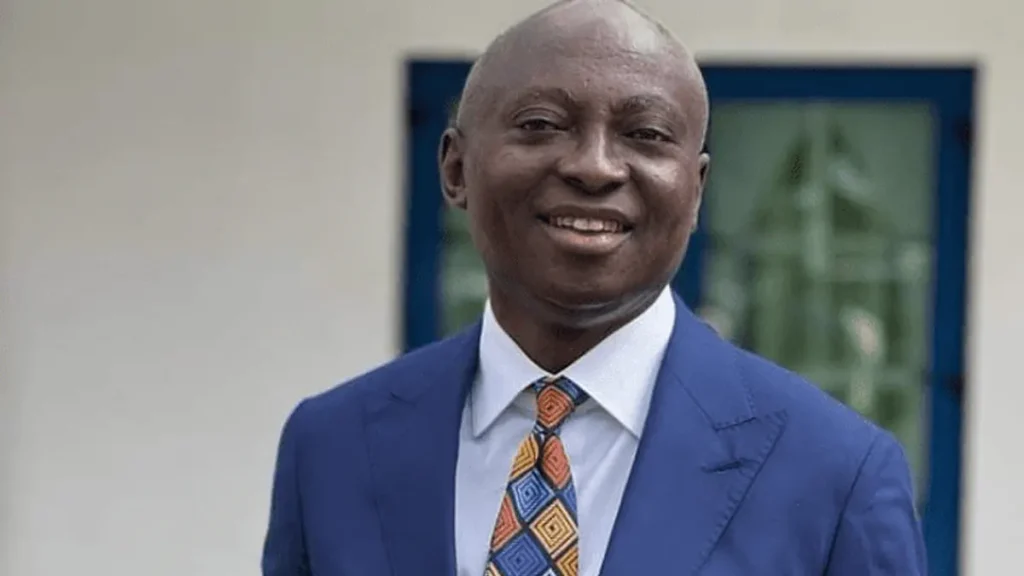The legal battle surrounding former National Signals Bureau chief, Kwabena Adu Boahene, has intensified following his seven-day remand into the custody of the Economic and Organised Crime Office (EOCO). The remand, ordered by an Accra High Court, stems from allegations of witness tampering in a separate theft case, a charge vehemently contested by Adu-Boahene’s legal counsel, Samuel Atta Akyea. Akyea has launched a scathing critique of the Attorney-General, Dr. Dominic Ayine, accusing him of bringing forth weak and unsubstantiated charges, characterizing the prosecution’s case as lacking merit and describing the charges as “watery and very anaemic.” This sets the stage for a potentially protracted legal confrontation, raising questions about the strength of the evidence and the motivations behind the prosecution’s pursuit of the former intelligence chief.
The core of Atta Akyea’s argument centers on the perceived flimsiness of the charges. He contends that the prosecution’s case, as presented to the court, is incomplete and lacks the necessary evidentiary foundation to justify Adu-Boahene’s remand. The lawyer’s use of phrases like “the food is not fully cooked” suggests a belief that the investigation is premature and that the Attorney-General rushed to bring charges without sufficient evidence. This assertion of inadequate preparation casts doubt over the validity of the accusations and raises concerns about the potential for prosecutorial overreach. The swiftness of the remand, coming shortly after the charges were filed, further fuels the defense’s argument that due process is not being followed.
The public nature of the accusations and the subsequent remand have not escaped Atta Akyea’s criticism. He accuses the Attorney-General of engaging in “serious theatrics in the public domain,” suggesting a calculated move to damage Adu-Boahene’s reputation before the legal process has run its course. This allegation implies a potential political motivation behind the charges, raising the specter of the case being used as a tool for political maneuvering rather than a genuine pursuit of justice. Akyea’s confidence in his client’s eventual exoneration, expressed through the phrase “storm in a teacup,” underscores his belief that the charges will ultimately crumble under legal scrutiny.
The remand itself adds a complex layer to the case. By placing Adu-Boahene in EOCO custody, the court has granted the investigative body further time to gather evidence. While this is standard procedure in such cases, the defense will likely scrutinize the methods employed during this period to ensure they comply with due process and do not unduly prejudice the accused. The seven-day remand period serves as a crucial window for both the prosecution to strengthen its case and the defense to gather evidence challenging the allegations. This period will be closely watched by legal observers and the public alike, setting the tone for the legal battles to come.
Adu-Boahene’s position as the former head of the National Signals Bureau adds another dimension to the proceedings. The nature of his previous role, dealing with sensitive national security information, raises the stakes considerably. Atta Akyea’s statement that “a national security operative should not be treated in this manner” suggests a concern that the handling of this case could have broader implications for the intelligence community and national security. The potential disclosure of classified information during the legal process is a sensitive issue that adds a layer of complexity to the proceedings.
Looking ahead, the continuation of the case will likely hinge on the evidence presented by EOCO following the remand period. The defense’s strategy will undoubtedly involve challenging the admissibility and reliability of any new evidence presented. The court will have the crucial task of weighing the evidence objectively and ensuring that due process is observed throughout the proceedings. The case’s ultimate outcome will have significant ramifications, both for Adu-Boahene’s future and for the perceived integrity of the legal and national security apparatus. The public scrutiny surrounding the case will undoubtedly continue as the legal battle unfolds.


